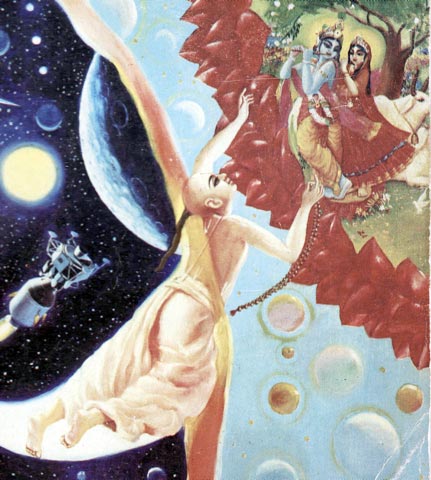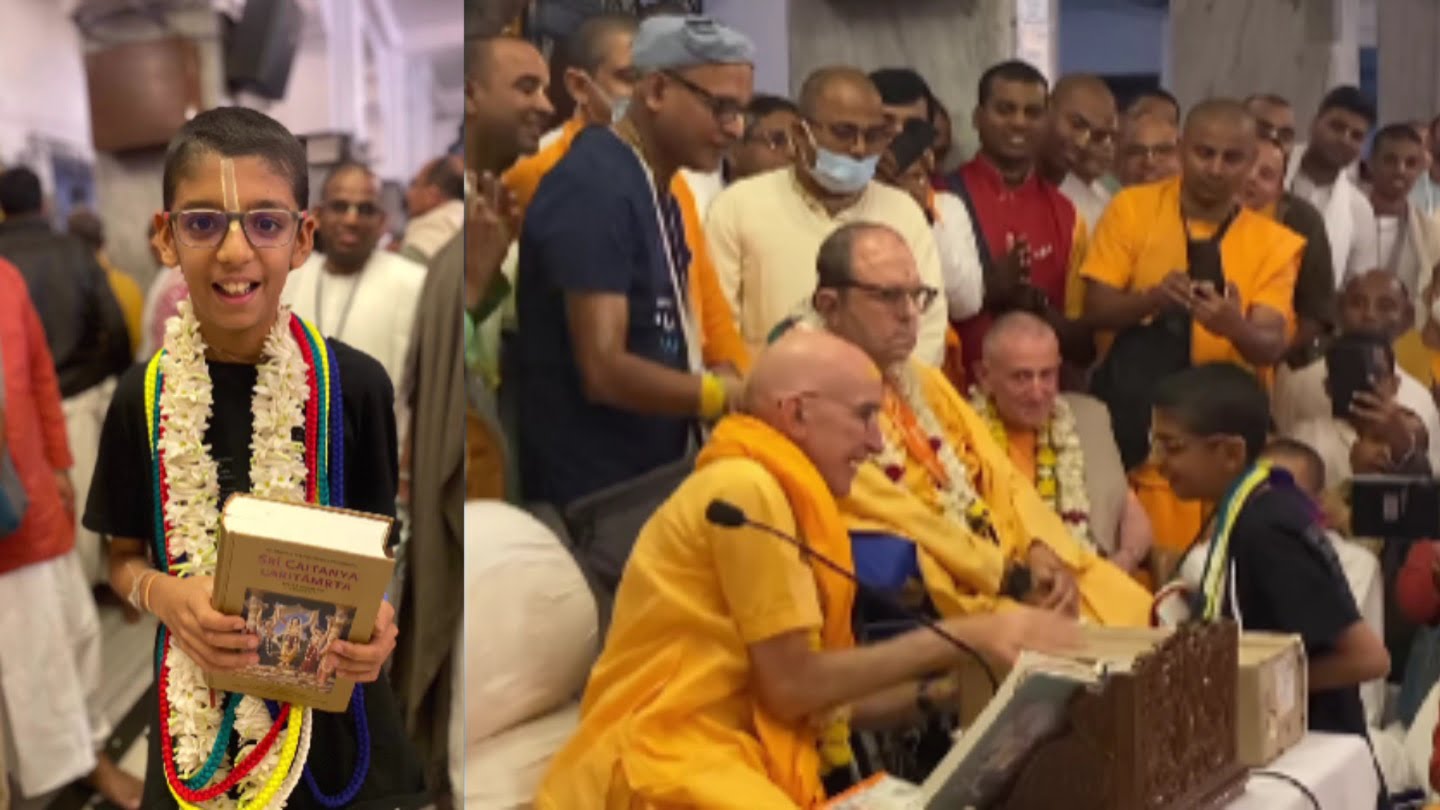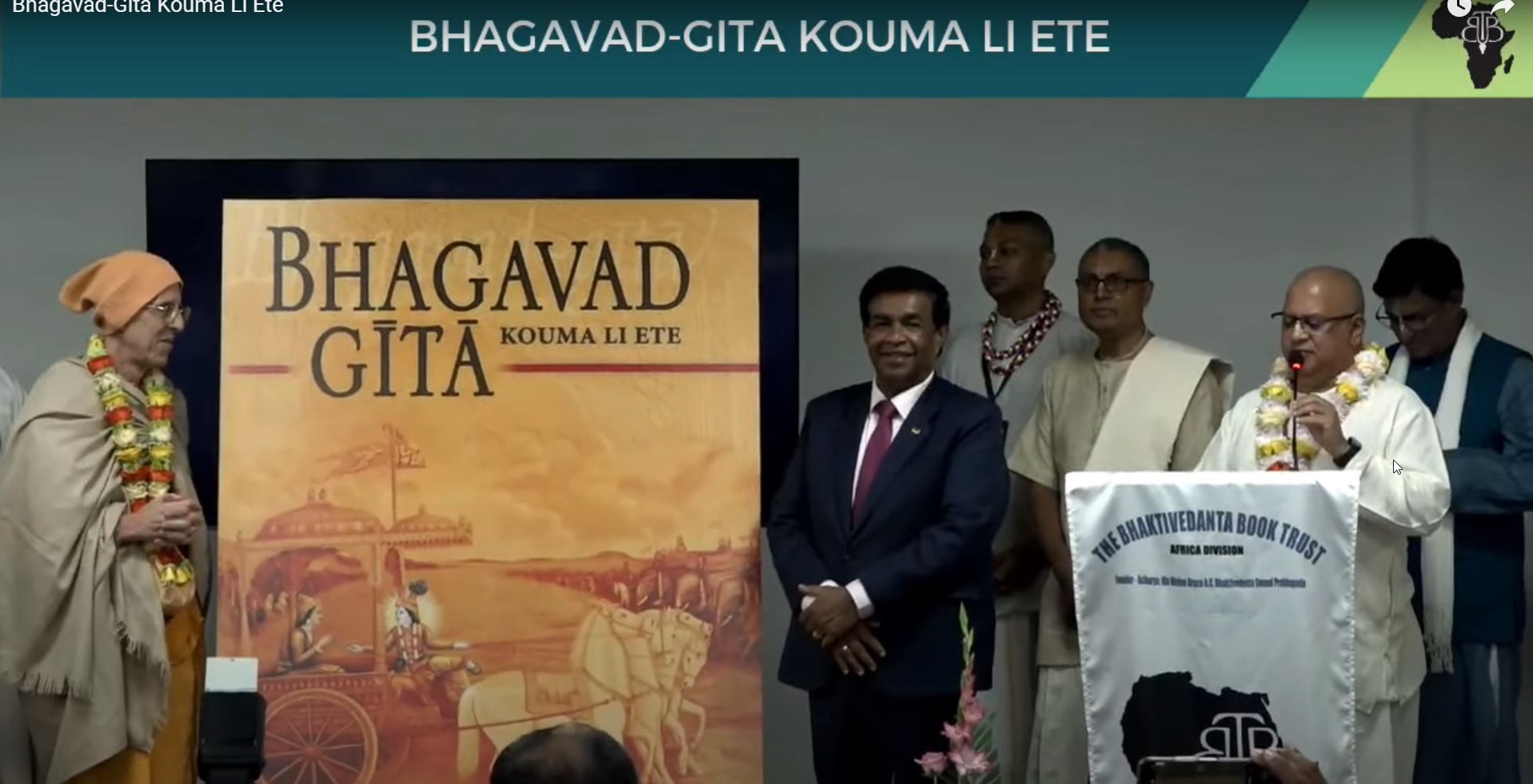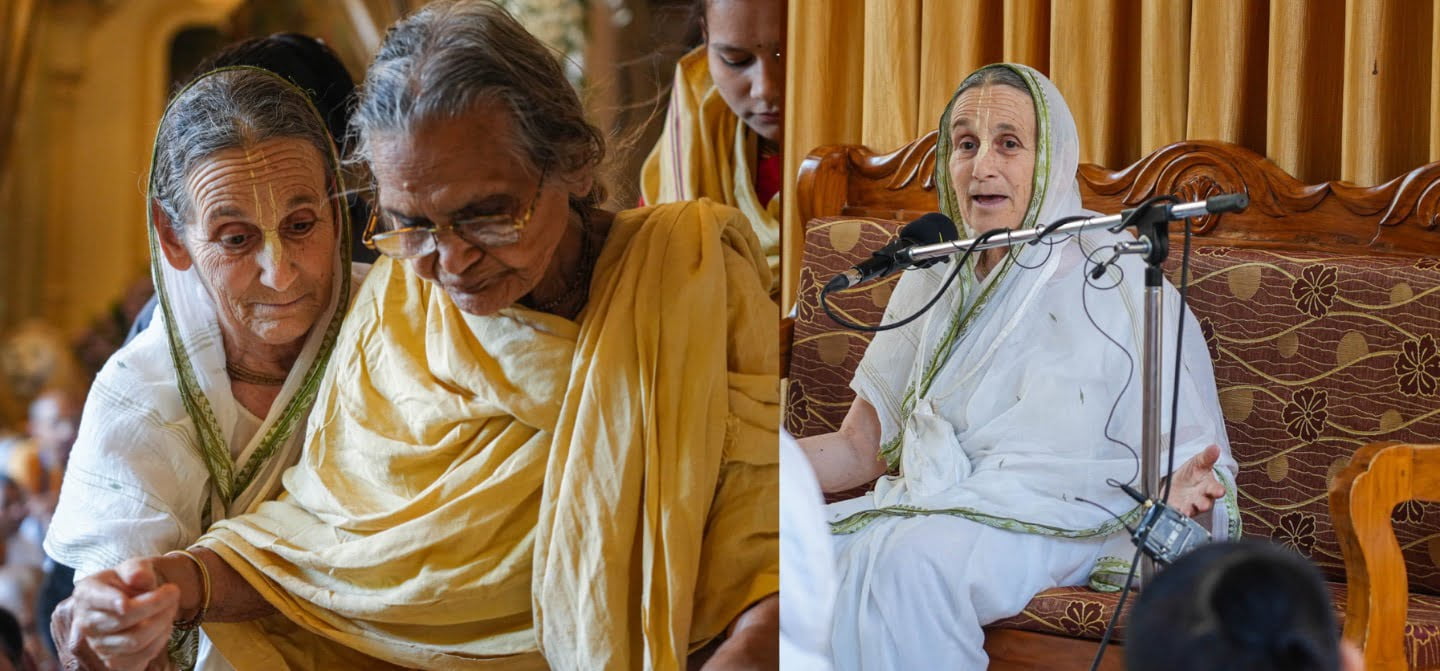Common Ground…err Common Space
By Sesa Dasa | Sep 12, 2009

Finally, there’s been a breakthrough. After 50 years of endeavor and countless billions of dollars spent, common ground, or should I say, common space has been discovered in the debate between believers in the Vedic theistic worldview and adherents of the scientific worldview on the subject of travel to other planets in the universe.
Both sides have always acknowledged what Professor. Lawrence M. Krauss, an internationally known theoretical physicist and Inaugural Director of the Origins Initiative at Arizona State University, describes in his recent New York Times OP-ED Contributor article, “The lure of space travel remains intoxicating for a generation brought up on ‘Star Trek’ and ‘Star Wars.’”
Hare Krishna Movement Founder Srila A.C. Bhaktivedanta Swami Srila Prabhupada writes in the Preface to his 1959 publication, Easy Journey to Other Planets, “The latest desire man has developed is the desire to travel to other planets. This is also quite natural, because he has the constitutional right to go to any part of the material or spiritual skies. Such travel is very tempting and exciting because these skies are full of unlimited globes of varying qualities, and they are occupied by all types of living entities.”
Where there has been disagreement between the two sides is in the form or method of such interplanetary travel. Srila Prabhupada says, “The desire to travel there [other planets] can be fulfilled by the process of yoga, which serves as a means by which one can transfer himself to whatever planet he likes”¦” Professor Krauss’s preferred method involves “complicated launching, propulsion, guidance or landing technologies,” the cost of which “is likely to run in excess of $150 billion” to send humans back to the Moon.
However, the good news is that common space in the debate is now emerging. Commonality centered on the question, “Once you go – why come back?”
Professor Krauss’s article entitled, “A One-Way Ticket to Mars,” asks the question this way, “There is, however, a way to surmount this problem while reducing the cost and technical requirements, but it demands that we ask this vexing question: Why are we so interested in bringing the Mars astronauts home again?”
Srila Prabhupada describes the question by relating a discussion he had, “That my book, that Easy Journey to Other Planets… One gentleman, he became very much enthusiastic, that ‘Oh, we can go to the other planet?’ And ‘Yes, you can go. Read this book.’ ‘Then I shall come back again?’ ‘And why you shall come back again? You shall remain there.’ ‘No, no, no. I don’t want that. I don’t want that. I shall go and come back.’
I must admit that although I have always been fascinated by the adventure of space travel, the idea of having to give up my body, i.e. dying, which is the unstated premise in the yogic process of such travel, has always been a little daunting for me. Thus, I’ve found myself identifying quite strongly with the gentleman who was speaking with Srila Prabhupada.
But, here’s something I learned from Professor Krauss’s idea that appeals to the heroic strands in my heart and at the same time is a dose of reality. He says, “While the idea of sending astronauts aloft never to return is jarring upon first hearing, the rationale for one-way trips into space has both historical and practical roots. Colonists and pilgrims seldom set off for the New World with the expectation of a return trip, usually because the places they were leaving were pretty intolerable anyway. Give us a century or two and we may turn the whole planet into a place from which many people might be happy to depart.”
Forget “a century or two,” this material world is already a place “pretty intolerable” for me in my best moments as a devotee of Krishna. And, if I can help others through the self-sacrifice of giving up my body, i.e. dying for a good cause by going to other planets, that’s the type of inspirational ending I would prefer knowing that an ending is inevitable anyway.
Interestingly, Professor Krauss points out that the assumption that the astronauts want to come back may be fallacious. Indeed, the sentiments I just expressed, sentiments which could be attributed to a devotee of Krishna, aren’t all that different than the sentiments of scientists faced with the prospect of one-way space travel. Professor Krauss reports, “If it sounds unrealistic to suggest that astronauts would be willing to leave home never to return alive, then consider the results of several informal surveys I and several colleagues have conducted recently. One of my peers in Arizona recently accompanied a group of scientists and engineers from the Jet Propulsion Laboratory on a geological field trip. During the day, he asked how many would be willing to go on a one-way mission into space. Every member of the group raised his hand.”
Of course, the goals and activities performed once we leave on our journeys to other planets still greatly differ. Scientist remained focused on the false hope of solving the unsolvable problems of material existence and making permanent arrangements for life as we know it. Whereas, proponents of the Vedic theistic worldview focus on development of the spiritual potential inherent in all living beings, and ultimately exiting this material world for eternal life in the spiritual world.
However, through this commonality, a self-sacrificing determination, perhaps now we can at least begin to understand each other’s motivations for space travel. This is true progress. Progress which ironically is captured in U.S. Astronaut Neil Armstrong’s words as he took “man’s first step on the moon,” “That’s one small step for man; one giant leap for mankind.”












